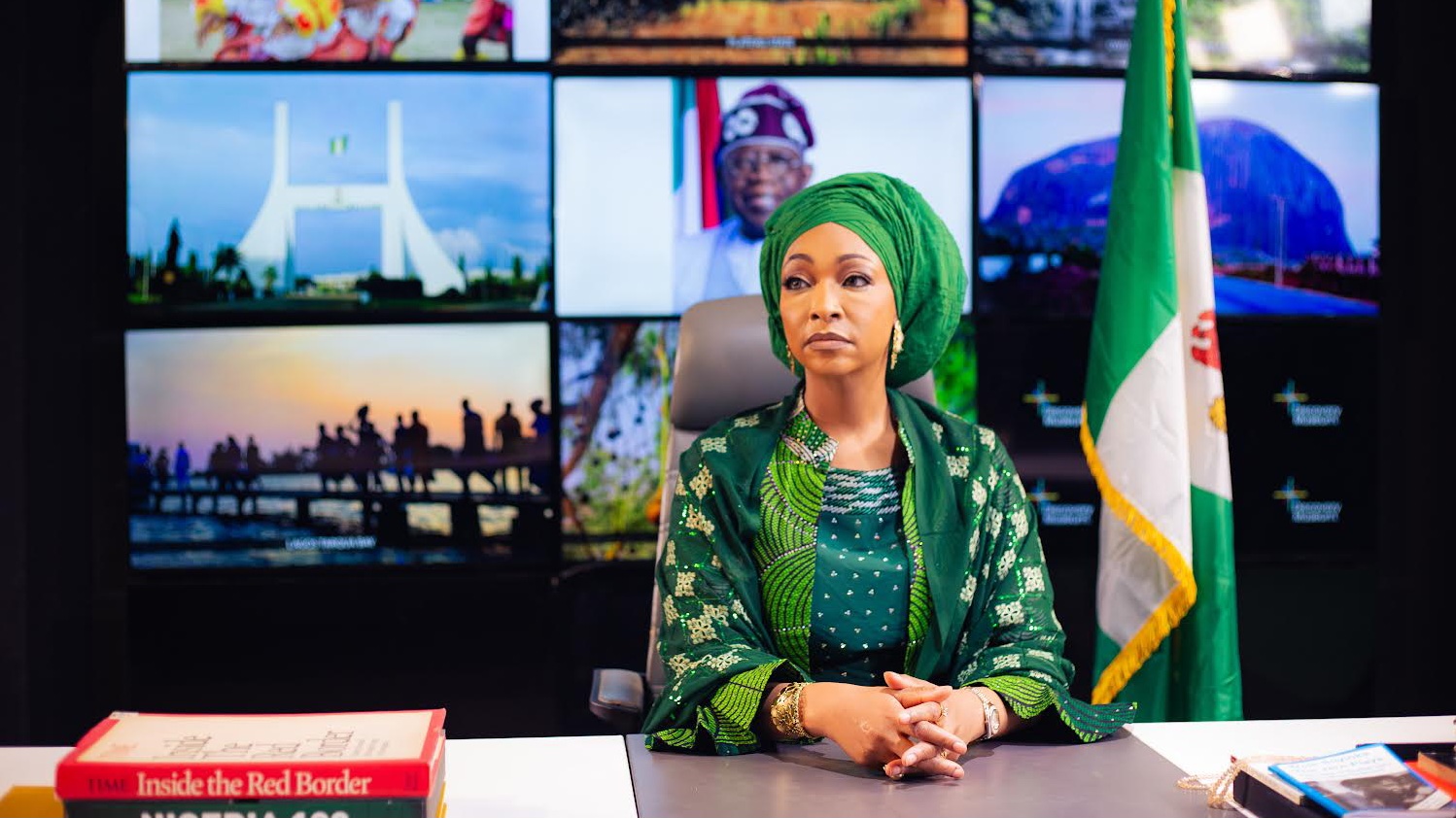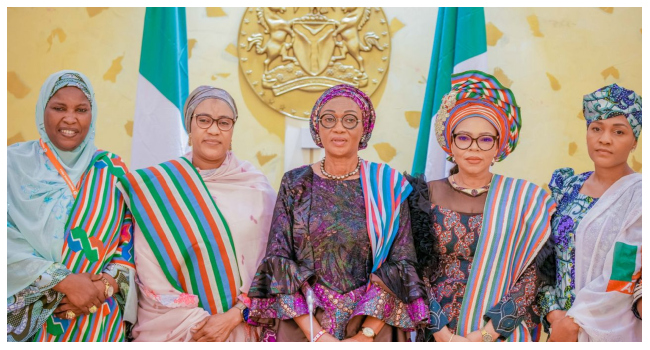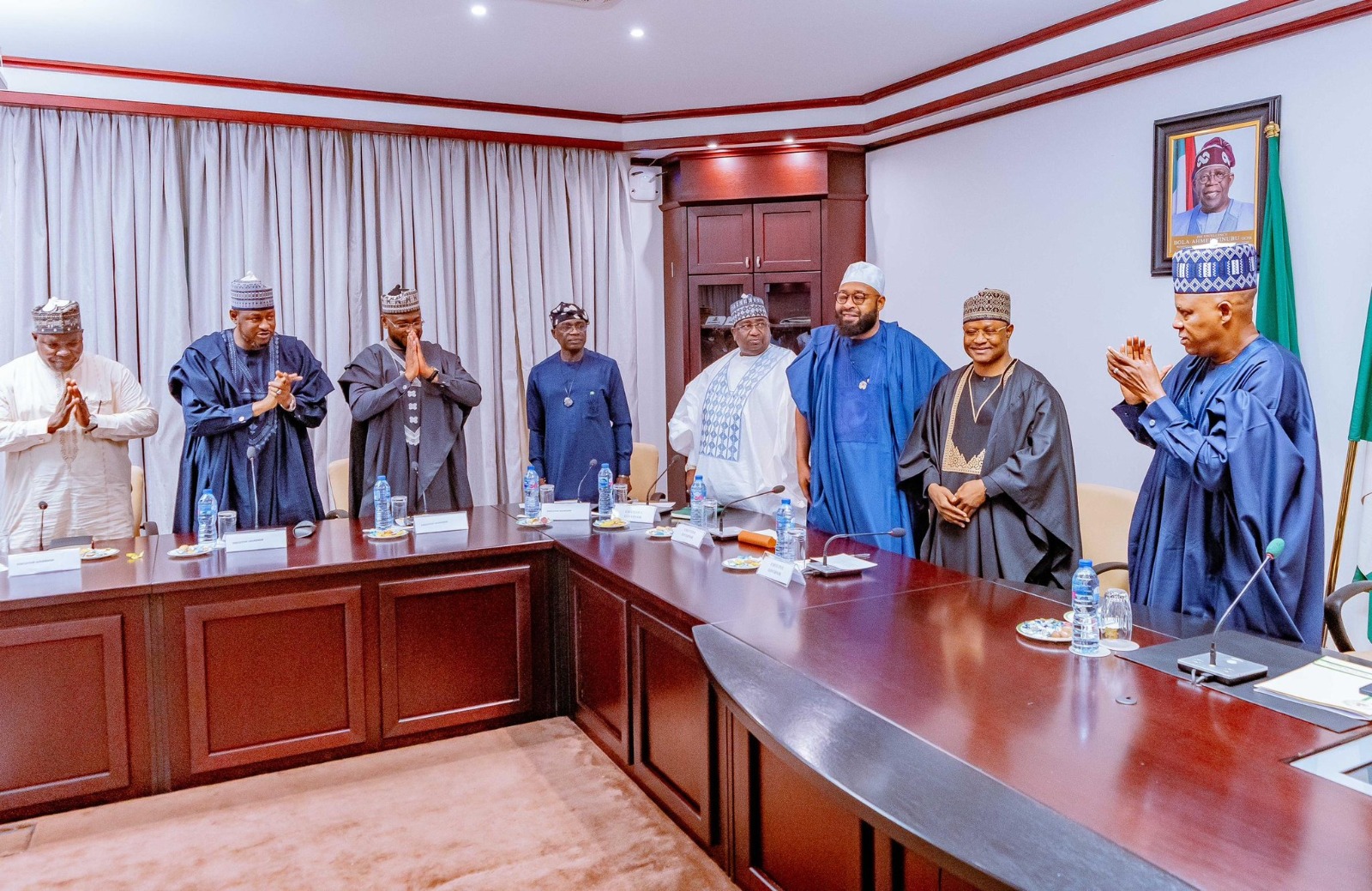BY OLUWAFEMI POPOOLA
The story of the Art, Culture and Creative Economy minister, Hannatu Musa Musawa, who was appointed by President Bola Tinubu in 2023, after serving as his Special Adviser on Culture and Entertainment Economy, is an inspiring one, most especially to the next generation of women in Africa who are passionate about leading change and challenging the status quo in a male-dominated world with a male-dominated culture.
The 49-year-old lawyer and activist has joined the league of performing and outstanding ministers under the Renewed Hope government of President Bola Tinubu. Hannatu’s appointment as a minister, leading the art and the creative sector of the country, has proven to be a smart move by the president. At the moment, Nigeria is experiencing renewed hope in the creative ecosystem given the minister’s hard work in setting in motion various initiatives to harness the economic potential of Nigeria’s creative industry. This encompasses various forms of artistic expression such as music, film, fashion, visual arts, and literature with the potential to contribute significantly to Nigeria’s economy.
“We are committed to a deep dive into every creative sub-sector, from the finest works of excellence to the realms of music and gaming. We understand the power of culture to unite and inspire, and we intend to harness it to the fullest,” Musawa noted during the Art, Culture and Creative Economy roundtable at the State House in Abuja, sometime in November 2023.
Advertisement
She continued, “We have developed a robust economic plan aimed at creating millions of jobs, supported by comprehensive skills training programmes. Our objective is to contribute 10% to the nation’s GDP, expanding sectorial GDP to a remarkable $100 billion by 2030″.
The minister’s vision of creating 10% of the country’s gross domestic product by expanding the creative sector’s GDP to $100 billion by 2030 is a big deal and should be commended by art enthusiasts, patriots and believers of a great Nigeria.
Musawa, who became the pioneer of the new ministry, assumed the position on August 16, 2023. Not long after that, the minister swiftly launched a visionary plan to transform Nigeria’s creative sector, aiming to make Nigeria the culture and entertainment capital of the world. Under her leadership, there seems to be a new era of focus and commitment towards hard work, innovation and resilience.
Advertisement
Thanks to Nigeria’s cultural diversity with a rich tapestry of traditions and practices that have captured the attention and admiration of people worldwide, we are currently witnessing the golden age of its cultural and creative dominion over Africa. Ditto for our literary achievements which is another example of our dominance in the continent.
Nigeria’s music industry, in particular, has experienced unprecedented growth and global recognition in recent years. Nigerian musicians, such as Burna Boy, Wizkid, and Davido, have achieved international success and have been instrumental in popularising the unique sound of Afrobeat and Afrobeat fusion. Their music not only resonates with Nigerians but also transcends borders, captivating audiences across Africa and beyond.
In addition to music, Nigeria’s film industry, known as Nollywood, has also played a significant role in the country’s cultural and literary dominance. Nollywood is the second-largest film industry in the world in terms of output, producing hundreds of movies each year. These films, often characterised by their compelling storytelling and relatable themes, have gained popularity both domestically and internationally. Nigerian filmmakers have been recognised at prestigious film festivals and have received critical acclaim for their work.
In addition, the country has produced world-renowned authors and writers. One such example is Chimamanda Ngozi Adichie, whose works have garnered international recognition and accolades. Nigerian literature also explores themes that resonate with readers globally, addressing issues of identity, culture, and societal change. There has never been the right time to market all these cultural and literary abundances to the world other than now.
Advertisement
Those who are conversant with the minister’s activities would agree with me that this is exactly what the honourable minister has been up to. Musawa understands the transformative power of art and the role it plays in shaping society. Her moves, statements and actions reflect her commitment to preserving and showcasing Nigeria’s cultural heritage through various initiatives, such as the vision of the establishment of cultural centres and museums, the preservation of traditional arts and crafts, and the promotion of cultural exchange programmes.
One such example to buttress Musawa’s commitment to her job was her outstanding show at the recently concluded sixth edition of the Culture Summit Abu Dhabi, in the UAE capital. The minister and her team had productive meetings at the ADB Culture Conference, discussing partnership and collaboration with HE Mohammed Al Mubarak and Manuel Rabaté of the Department of Culture and Tourism and the Louvre, Abu Dhabi.
Held under the theme “A Matter of Time”, the summit which was organised by the Department of Culture and Tourism – Abu Dhabi, brought together cultural leaders, artists, and experts to explore the future of the cultural sector and its potential to drive positive change. The summit gathered over 200 speakers and 1,150 participants from 90 countries who converged together to identify ways in which culture can transform societies and communities worldwide.
Musawa’s participation at the prestigious event marked a significant step towards fostering international partnerships and collaborations for Nigeria. Many gains were projected for the country as discussions with HE Mohammed Al Mubarak and Manuel Rabaté of the Department of Culture and Tourism and the Louvre, Abu Dhabi covered so many grounds like museum development, exhibitions, cultural exchanges, investment opportunities, and other joint initiatives.
Advertisement
Just last week, the minister visited the historic Qatar National Museum, alongside President Bola Ahmed Tinubu and some other cabinet members. In Doha, Musawa struck a partnership deal with Qatar in areas of art and cultural exchange that promises to create better opportunities for Nigerians in the future.
She said: “We had multiple productive partnership discussions on the sidelines of the visit, and we are excited about the opportunities that exist for collaboration across multiple segments. Partnerships remain a cornerstone of our roadmap. Qatar is delectable and almost like a dream resort to come to. There is a lot of interface in terms of what Nigeria wants to do. This is a new government with a huge burden on its shoulders to do something different, to bring innovation, and to take Nigeria into the future”.
Advertisement
Art is the lifeblood of society. Also, collaboration and dialogue among nations are the perfect recipe for leveraging the potential of cultural art and the creative economy while addressing global challenges and achieving the UN SDGs. More so, the tour of the state’s visit by the minister and President Bola Tinubu, to the spectacular National Museum of Qatar highlighted the importance of culture and heritage in nation-building. This also underscores Nigeria’s commitment to revitalising the country’s museums and monuments. Arts and culture must be at the forefront of societal progress and development.
Let me commend the minister for reaching out to the renowned playwright and Nobel laureate, Professor Wole Soyinka to solicit his expertise and guidance to bolster the promotion and preservation of Nigeria’s literary art. That was a profound move. Bringing the esteemed Prof Soyinka on board will breathe new life into the literary art sector. I am confident that the collaboration will serve as a turning point that will attract more attention and resources to Nigeria’s creative landscape.
Advertisement
With Prof Soyinka’s guidance, the minister, undoubtedly, can lay the groundwork for a more vibrant and sustainable plan in bringing out strategies and initiatives to uplift the literary art scene in the country. However, I advise that a more inclusive approach involving a broader range of stakeholders and, a diverse group of experts, including writers, publishers, educators, and cultural activists, would be more beneficial in formulating these strategies to ensure a comprehensive and inclusive plan.
Popoola is a journalist and political analyst.
Advertisement
Views expressed by contributors are strictly personal and not of TheCable.
Add a comment






